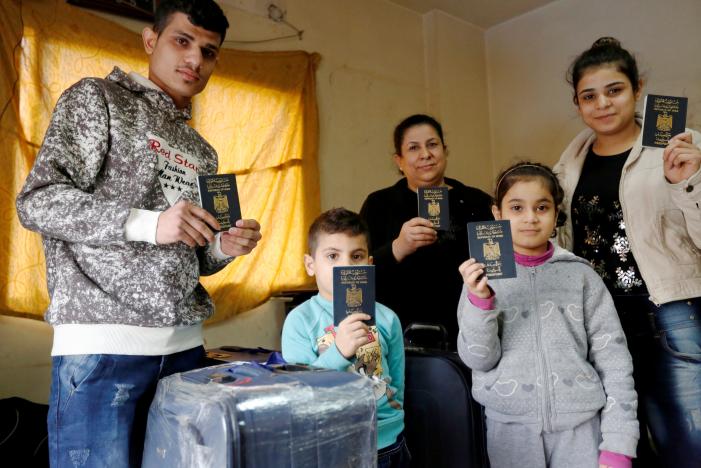Is it hard to immigrate to the UK legally?

Iraqi refugee Nizar Kassab and his family pose for pictures with their passports in their temporary home in Beirut, Lebanon February 4, 2017. REUTERS/ Jamal Saidi

Students and asylum seekers make up the majority of Iraqis that are trying to receive a UK visa. Unfortunately, both groups are having difficulties getting it these days. It appears that there is a lot of inequality in immigration-related decisions made by UK officials compared to individuals from other Middle Eastern countries.
Experts at Solicitors.Guru advise using immigration solicitors to improve the approval chances of your application. It is good to have an experienced immigration specialist working with you to identify the best way to approach your specific case.
However, most people choose not to use solicitors or simply do not have the money to pay for their services. Still, the attitude of UK officials towards Iraqi immigrants is unacceptable. You should not have to have a solicitor fighting for you to enter the UK when applications from Syria and Iran are approved way more often in comparison to applications from Iraq.
The situation with the Middle East Graduate (MEG), UK student recruitment agency comes to mind. Last year they had all 48 of their student visit visa applications rejected by the British embassy in Amman. Even though all documents were in order and they had proof of paid tuition fees along with supporting documents from the transport ministry of Iraq.
British embassy’s decision did not make any sense since MEG previously helped 36 civil servants from Iraq to attend training courses in the UK. All 36 successfully came back to Iraq upon completion of their training. Apparently, UK officials were not completely happy with proof of accommodation cost and tuition fees. Various other reasons were mentioned as well.
Dr. Emma Williamson from the University of Bristol complained about visa rejection for two of her Iraqi researchers. They were denied entry to the UK despite the fact that the UK’s Global Challenges Research Fund backed the project with the cost of visas specified in the budget.
Asylum seekers from Iraq are also struggling to enter and remain in the UK legally. In 2017 only 20% of Iraqi asylum applications were approved. For comparison, the total number of applications approved among other Middle Eastern countries are 47% for Iran and 83% for Syria.
It is strange to see such a difference in application success rate. The Islamic State forces recently displaced both Syrians and Iraqis. Decisions should be more or less the same for asylum seekers from both countries. Unfortunately, it is not the case at the moment. It seems that immigration solicitors in the UK are the only people able to help Iraqi immigrants fight unfair government decisions.
